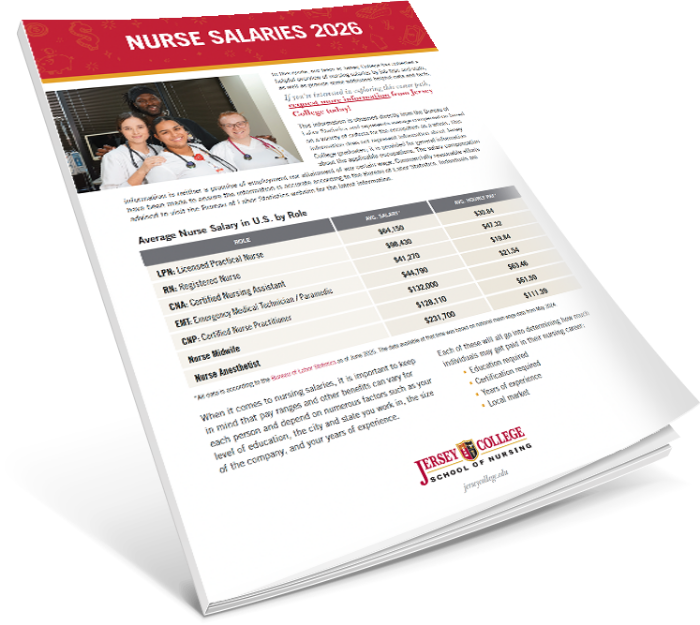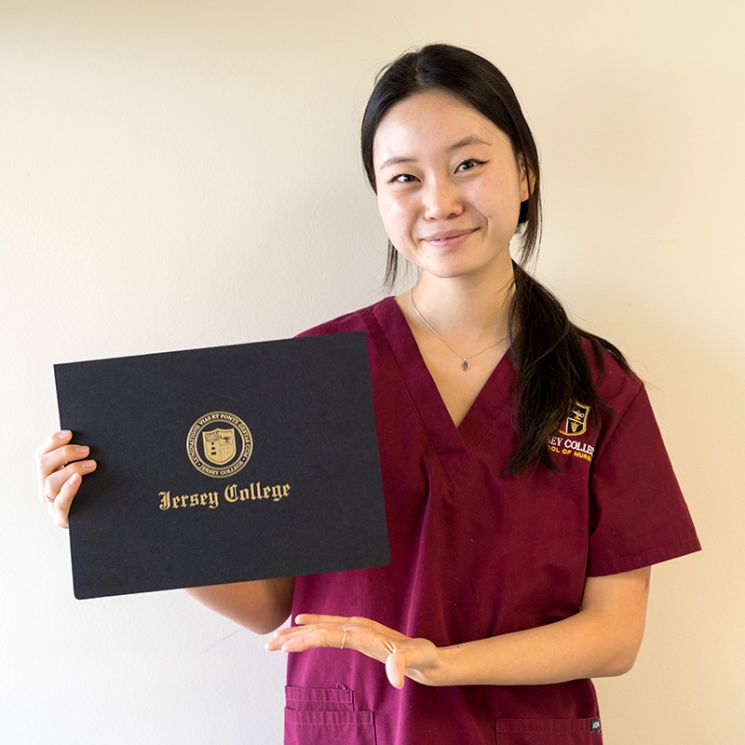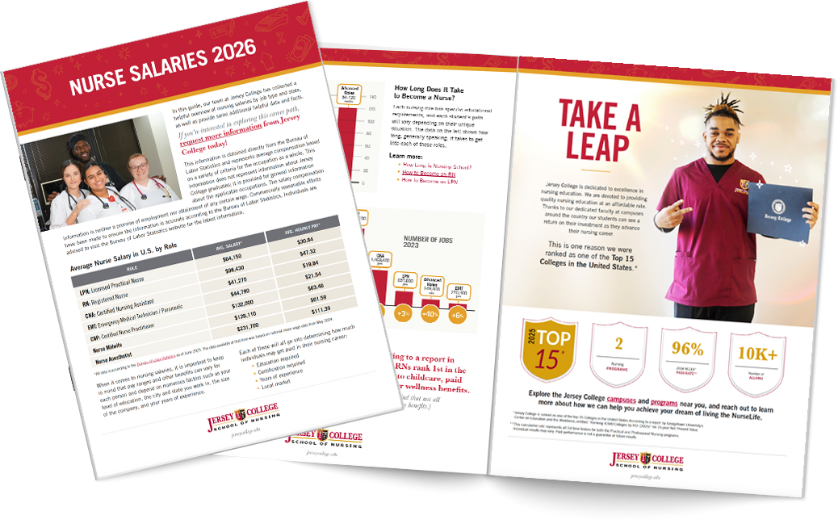
LPN vs. RN: What's the Difference?
LPN vs RN Job Duties
Day-to-day job duties comprise one of the major differences between LPNs and RNs.
LPNs usually report to RNs. Their duties cover many aspects of patient care while also maintaining an organized and sanitary office space.
The specifics of these tasks depend on the type of healthcare environment. For example, an LPN working in a nursing home may have dramatically different daily duties than an LPN in a hospital or emergency room.
Registered nurses undergo a longer course of study. They also often specialize in a particular area of care. For these reasons, they typically have more responsibilities than LPNs.
For instance, RNs have more control over patient care and often communicate directly with families. They usually report to physicians and can have different daily tasks depending on the type of facility where they work.
- LPN Job Duties
Some common LPN job duties include:
- Collecting patient info such as weight, height, and heart rate
- Monitoring vital signs
- Clearing and sanitizing equipment
- Assisting with daily tasks, including bathing, eating, drinking, and personal grooming
- Maintaining daily records and submitting reports to their supervising RN
- Administering medication
- Bandaging and taking care of wounds
- RN Job Duties
Common RN job duties include:
- Assessing patient status and recording observations
- Starting IVs and distributing oral and IV medication
- Collecting blood samples
- Performing physicals
- Conducting diagnostic tests
- Educating patients and families on the patient’s condition and at-home care
- Consulting and collaborating with physicians to determine treatment
Both LPNs and RNs play fundamental roles in caring for patients and keeping their hospitals and clinics running. Patients would not be able to get the care they need without capable and highly trained nurses standing at the ready.

Discover Nursing Salaries: Get Your Free Guide Now
Download a handy reference of average nurse salaries—so you can plan your next career move with confidence.
ADN Degree vs. LPN Diploma
As an aspiring nurse, you need to understand the differences between pursuing an Associate Degree in Nursing (ADN) and a Licensed Practical Nurse (LPN) diploma.
To help you better navigate these nursing degree options, we want to explain the similarities and differences between these two common starting points for aspiring nurses:
- An Associate Degree in Nursing, or ADN, is a Professional Nursing program that prepares students to become Registered Nurses, or RNs.
- Note: To become an RN, you could also get a Bachelor’s degree. The BSN (Bachelor of Science in Nursing) will take 4 years instead of 2-3, and both options prepare you to become an RN.
- A Licensed Practical Nurse (or LPN) program is a Practical Nursing program. LPN diplomas are not the same as an associate’s degree. This diploma-granting program prepares you to for the role of an LPN.
- Note: An LVN (Licensed Vocational Nurse) program may also be an option in your area. LVNs and LPNs are largely the same and this is mostly a nomenclature difference that depends on your state.
While both are entry-level pathways into the nursing profession, they offer different levels of education and prepare you for differing responsibilities and career opportunities.

The Basic Differences
| ADN | LPN / LVN | |
|---|---|---|
| Degree Earned | Associate Degree in Nursing | Practical Nursing (PN) Diploma or Certificate* |
|
Program Type |
Professional Nursing |
Practical Nursing |
|
Licensure Exam |
NCLEX-RN | NCLEX-PN |
|
Role |
Registered Nurse (RN) | Licensed Practical Nurse (LPN) |
|
Length of Study |
2-3 years | 12-18 months |
|
Curriculum Focus |
Providing primary care for patients as well as learning management skills and how to work in acute-care settings. | Maintaining a safe and sanitary clinic environment, providing basic care for stable patients, and assisting RNs and physicians. |
|
Career Focus |
Primary care, management skills, acute-care settings. | Basic patient care, assisting RNs and physicians. |
|
Typical Work Settings |
Hospitals, clinics, outpatient facilities, and more. | Hospitals, nursing homes, home health care, and more. |
*The Jersey College LPN programs are a diploma-granting program. However, you may find some LPN and LVN programs that grant certificates instead of diplomas.
- Choose an ADN if you are looking for a comprehensive nursing education, aspire to become a Registered Nurse, and are willing to invest more time in your studies.
- Choose an LPN Diploma if you want to enter the nursing field quickly, focus on basic patient care, and prefer a shorter educational path.
Educational Pathways
Let’s breakdown the difference in ADN vs LPN program experiences, length of study, and post-program licensure testing:
- Clinical Experience and Training
Both LPN and ADN programs include essential clinical experience, providing students with hands-on training to develop their nursing skills. However, ADN programs offer more extensive clinical experience to prepare students for the broader responsibilities of an RN.
Some LPN and RN programs partner with hospitals to allow students to supplement their education with hands-on experience in a clinical setting. Be sure to explore the hospital-based programs offered at some Jersey College campuses if this is of interest to you.
- Duration of Study
LPN programs generally take 12-18 months to complete, while ADN programs require 2-3 years. Some programs offer part-time study options, the ability to reduce your course load, or evening programs to accommodate those working and studying simultaneously.
There may also be opportunities for advanced placement in your chosen program:
- The LPN to RN Bridge Program is a popular pathway for LPNs to advance into the RN role.
- Advanced Placement options for the RN program may also allow students to receive credits for prior learning related to the completion of a Practical Nursing program.
Contact an Admissions Representative to learn more and discuss your options.
- Licensing and Exams
After completing your degree, you’ll be required to pass the National Council Licensure Examination (NCLEX) in the state where you plan to practice. This is another area where ADNs and LPNs diverge:
- Those graduating from an LPN program will go on to take the NCLEX-PN. Exam topics include basic patient care, following instructions, and providing assistance to RNs.
- Those who earn an ADN will take the NCLEX-RN. The test covers the same material as the NCLEX-PN but with sections about supervising nurses and making decisions about patient care.
Once you pass your test and obtain your license, you’ll be ready to take a job as an RN or LPN!
For more information on further career opportunities, pay rates, and more, explore our LPN vs. RN page.
Curriculum Comparison
Though there's plenty of overlap, prospective LPNs and RNs have different curriculums and expectations.
It can take anywhere from two to four years to become an RN depending on the degree program. LPNs usually receive their certification in one year to eighteen months.
The LPN curriculum focuses on assisting RNs and physicians, maintaining a safe and sanitary clinic environment, and providing basic care for stable patients.
Many LPN and RN programs partner with hospitals to allow students to supplement their education with hands-on experience in a clinical setting.
- LPN Curriculum Sample
Some subjects covered in LPN programs include:
- Nursing fundamentals
- Nursing ethics
- Nursing theory
- Anatomy and physiology
- Documentation and medical terminology
- Infection control and prevention
- Patient safety
- Medical administration
- Mental health and wellbeing
- RN Curriculum Sample
RNs learn many of the same subjects as LPNs, but their studies focus on providing primary care for patients. They also learn management skills and how to work in acute-care settings.
Some topics covered in RN programs include:
- Nursing fundamentals
- Nursing ethics
- Nursing theory
- Anatomy and physiology
- Microbiology
- Chemistry
- Nutrition
- Nursing care
- Population-based practice
- Clinical rotation
Read more in our guide on How to Get into Nursing School.
Program Cost Considerations
ADN programs typically take longer and therefore cost more than LPN programs.
Explore the total estimated program tuition & fees for the program in your area using the cost calculator below. You can also visit our Tuition & Fees page for a detailed breakdown of program costs by campus location.
Program Tuition & Fees*

DAY

EVENING







Fee

Verification Fee (per term)





* subject to change
† Please contact your Financial Aid Planner for scholarship terms and conditions'
The Cost of Attendance (“COA”) is a technical term utilized to provide an estimate of the total amount of a student’s educational expenses during their enrollment. The components of COA are: (x) tuition and fees (books, course materials, supplies, and equipment) (“Direct College Expenses”); and (y) an allowance for (i) transportation; (ii) miscellaneous personal expenses; (iii) living expenses (including food and housing costs); (iv) a professional license and (v) dependent care and/or disability accommodations, where necessary (“Life Expenses”). This website only provides information related to Direct College Expenses; it does not include Life Expenses.
Students should also weigh the cost of education against future earning potential. Be sure to read the Salary data lower on this page.
Finally, proper financial planning for nursing education is also a crucial consideration. For more information on scholarships, grants, and other financial aid opportunities, explore our Financial Aid resources.
LPN vs RN Licensing
Once you've earned your certificate or degree in nursing, you'll need to take the National Council Licensure Examination (NCLEX) in the state where you plan to practice. Both exams cover similar content, but focus on different aspects.
- Aspiring LPNs take the NCLEX-PN. Exam topics include basic patient care, following instructions, and providing assistance to RNs.
- Soon-to-be RNs take the NCLEX-RN. The test covers the same material as the NCLEX-PN but with sections about supervising nurses and making decisions about patient care.
Other licensure qualifications and requirements vary state by state. Some states require a criminal background check. All nurses must be thoroughly educated on the specific laws governing nursing in the state in which they wish to practice.
Nursing licenses must be renewed periodically. The window varies, but most states require a license renewal every two years. Be sure to read our 10 Tips to Prepare for the NCLEX.

Sign up to get new articles in your inbox and stay updated on our nursing programs.
Salary Comparison
Due to their more rigorous educational background and higher degree of responsibility, RNs tend to earn higher salaries than LPNs.
The typical salaries across the US are shown below:
- $64,150 = The average (mean) salary for an LPN/LVN in 2024 according to the U.S. Bureau of Labor Statistics. The average hourly rate was $30.84.
- $98,430 = The average (mean) salary for an RN in 2024, according to the BLS. The average hourly rate was $47.32.
To explore salary data for both LPNs and RNs by state, visit our Nursing Salary Guide.
Career Advancement Options
LPNs and RNs have different options available to advance their careers. There are also limitations associated with each career path, which are primarily determined by the level of education involved.
Common LPN jobs include occupational health, rehabilitation, palliative care, and geriatric care. Since the educational requirements differ, LPNs cannot become RNs based on experience alone. The best way for LPNs to advance their careers and earn more money is to become an RN, such as through an LPN to RN bridge program.
RNs typically work in hospitals, home healthcare, and outpatient centers. They can advance their careers by earning their MSN degrees or by earning certificates that qualify them to fill upper-level management roles or perform more specialized tasks. The highest-paying options include becoming a registered nurse anesthetist, nursing administrator, neonatal intensive care nurse, or general nurse practitioner.
Industry Placement
RNs and LPNs sometimes work in different environments.
About 35% of LPNs work in nursing and residential care facilities. You're less likely to work in hospitals, home healthcare services, or government facilities as a licensed practical nurse.
On the other hand, 60% of RNs work in state, local, or private hospitals. 18% work in outpatient settings, while only 6% work in nursing or residential care facilities.
Which Career Path is Right for You?
The best career path depends on various factors, many of which are unique to you. Only you can decide on the right career path for you; however, Jersey College is always happy to provide guidance.
Ask yourself the following questions:
- What level of salary do I need to support the lifestyle I want to have?
- How soon do I need to start working in my chosen field?
- Is a shorter path better for my current situation?
Learning more about how to become an LPN and how to become an RN can help you decide which option is right for you. Keep in mind that you can always decide to continue your education later. Many Jersey College campuses offer LPN to RN bridge programs designed to help licensed practical nurses advance their careers.
Whichever path you choose, becoming a nurse is a tremendous achievement that guarantees a demanding but endlessly rewarding career.
Start your journey with us by contacting our admissions office for more information today!
Find Your Campus
Based on the success of our programs, we have grown to serve communities in 7 states (and counting!). Find a campus near you to start your NurseLife.

Free Guide: See How Much Nurses Earn in Your Area
Get instant access to nurse salaries for your role and location based on Bureau of Labor Statistics data.
